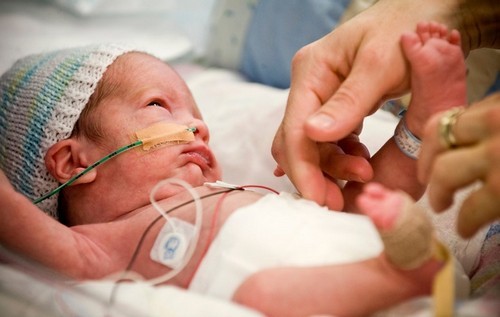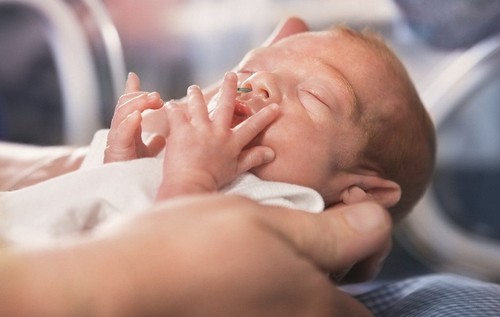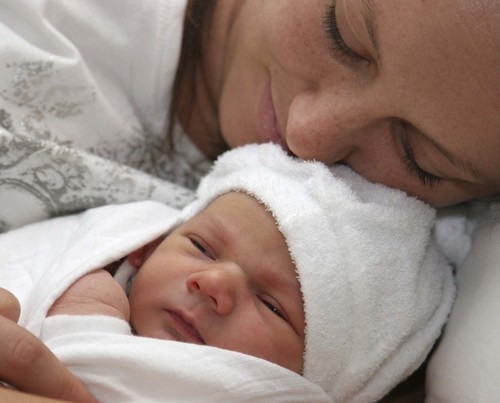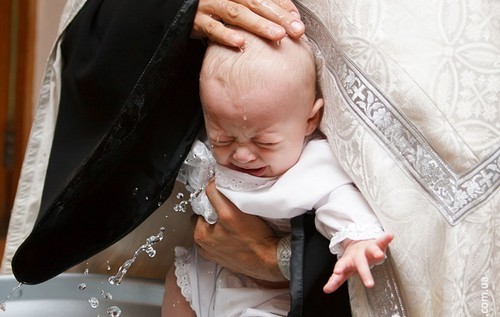Around the world, including Russia, there is an increase in cases of premature birth of babies. According to statistics, every tenth child is premature, or, if translated into numbers, then about 8-13 million babies around the world are in a hurry to see the light a few weeks or months ahead of schedule.
This includes “extremely premature” weighing up to 1 kg. Such a child needs special care. Extremely premature babies in 86% of cases, despite the measures taken, die in their first few weeks of life.
Of the 14% remaining, only 6 out of 100 have a chance of development without any deviations, defects and future disability. The rest are doomed.
In developed countries, premature babies are nursed in 96% of cases, in Russia only 28.
Which babies are considered premature
The intrauterine development program provides for 280 days, or 40 weeks. It is during this period that all the internal systems and organs of the infant finally develop and grow stronger to meet the environment. Premature babies are those babies that appeared a few weeks earlier than the due date: everyone born before the 37th week with a body weight of less than 2500 g. A baby born at the 38-39th week weighs, looks and does not differ from the babies for health reasons on the 40th week. They develop well, they have good health, do not have any physical and mental deviations. The only thing is that such premature babies need special nutrition and vaccinations. Feeding premature infants at 38-39 weeks is carried out under supervision.
How long can such a child go
To begin with, it should be said about the generally accepted stages of prematurity by body weight:
- 2001-2500g.
- 1501-2000
- 1001-1500g.
- Less than 1000g.
Since 1974, the World Health Organization has proposed, on the basis of collected statistics and successful practice, to consider children born with a body weight of at least 500 g and a period of at least 22 weeks as viable. This is a minimum that the truth does not guarantee a favorable outcome. You need to understand that a child born in a few months is weak in all vital respects.
The shorter the period and less body weight, the more experienced the center or separation is required, the greater the risk associated with death. Premature babies are demanding of conditions, care, nutrition.

Causes of Prematurity
There are many factors influencing the fact that the baby will be born prematurely.
Social and economic:
- Lack or inadequate medical care;
- Poor nutrition (lack of minerals and vitamins), even a few months before the expected birth;
- The presence of bad habits (smoking, drug addiction, alcohol);
- Severe stress in a few weeks, or lack of desire of the child;
- Harmful or dangerous workplace (dust, radiation, monotonous work, weight lifting, non-standardized working day or week). Work without days off for several weeks in a row;
- Inadequate parenting.
Social and biological:
- The age of a pregnant woman (before 18 or after 35) can cause prematurity of the child;
- The age of the father (before 18 or after 35) can cause prematurity of the child;
- The presence of a “bad” story (termination of pregnancy, miscarriage, criminal abortion in a few months);
- Genetic predisposition or disease of parents;
- Marriage between relatives.
Various diseases:
- The presence of chronic diseases of the mother, which could worsen during pregnancy;
- Past acute infectious diseases, possible complications after acute respiratory viral infections, flu, severe colds, rubella, chickenpox and so on;
- On the part of the fetus, there can also be various anomalies in the development of the cardiovascular system, internal organs, its position; hormonal dysfunctions, premature discharge of water, chromosomal defects;
- The presence and development of intrauterine infections: chlamydia, mycoplasma, ureplasm. Or other, not revealed or not treated venereal diseases;
- Underweight mother (less than 48 kg);
- Complications after vaccination;
- A premature baby may be born due to constant stress.
What is the immaturity of a premature baby
Premature babies are very different from healthy ones not only in appearance, but also in the structure of their internal organs. Especially at birth for 3, 6, 8 weeks. The skin is dry, thin, wrinkled. The body is covered with fluff. There are no grooves on the soles of the feet. Nails do not have a protrusion. Auricles have soft cartilage, poorly formed.
Immaturity of blood vessels is pronounced: if a child is put on its side, the skin acquires a pinkish tint.
General physique of the child: a relatively large head against the background of an underdeveloped skeleton (trunk).
Premature babies have poor development of sucking and other reflexes. This affects the feeding of premature babies. They are inactive. If in healthy children the umbilical cord heals quickly, then here the processes are much slower, including the falling off of the umbilical process.

Those born prematurely (within a few weeks) of children, unlike healthy children, have problems with straightening of the lungs. If in a healthy child, after inhalation, the lungs are straightened and remain in this position, then in a premature baby they can curl again. There are problems with the production of digestive enzymes, so feeding and nutrition of premature babies takes place according to a special program.
For such children, special vaccinations can be used.
A premature baby can sleep for several months, cry a lot, and respond with convulsive movements. It affects the underdevelopment of the nervous system. In the first few weeks, there may be serious problems with thermoregulation of the body.
Care
The period of postpartum adaptation in premature babies: born in a few weeks, is about a month or two. Given the immaturity of all life support systems, disruptions or longer periods are possible.
After birth, a premature baby needs special care, including feeding. The child is placed in artificially created conditions – a couveuse. It is in some way an incubator to maintain the vital functions of the body. The couvez is fully automated. Equipped with special sensors, in particular for monitoring the baby’s body temperature. Since heat transfer is impaired, a drop in body temperature to 32 ° C is critical and can lead to death.
All data is transmitted by software, which, depending on the testimony and development of the baby, makes certain decisions. In the event of a power outage, an emergency power supply is provided.
Nursing premature babies using the kangaroo method
Care method “Kangaroo” implies the bearing of children through the maximum physical contact of the baby and mother (skin to skin). This method allows you to quickly adapt a premature baby to the environment, in a few weeks or months, positively affects the development of the baby. It also compensates for heat loss.
The larger the area of contact, the better. Additionally, the baby is covered with a warm diaper and a hat is put on. This is a kind of clothing for premature babies.

How long will mom and child stay in the hospital?
This usually depends on the condition of the mother and the type of prematurity the baby belongs to. Dates for a mother can be from several weeks to a month, for a child about two months. Nursing preterm infants depends on how many weeks before the due date the baby was born and how it tolerates vaccinations.
Will a premature baby differ in development from other healthy ones when it grows up?
With proper care, despite the underweight and underdevelopment of the body, a premature baby will not differ from healthy peers in the future. The neuropsychic development of such children is slower, but in the end, with proper care, everything normalizes. For example, if a child was born at 28 weeks, then on his own, with proper care, he will begin to roll over no earlier than at 4-8 months.
Feeding
Feeding premature babies occurs under the close supervision of medical professionals. Premature babies grow faster than their peers, they need more nutrients, but the digestive system is weak, so a special mixture is prepared. More about infant formulas?
Vaccinations
Vaccinations are given only after the child has gained strength and gained weight. The approximate period is 6-8 months. Main vaccinations: BCG, hepatitis. Any mother has the right to refuse them.
Criteria, development and norms of behavior
The norm is a long sleep, tearfulness, a convulsive reaction to external stimuli, a relatively inhibited development of reactions or its short absence, rapid fatigue, apathy. You should not panic if the child behaves in this way. This can last several weeks or months.
What to do if alarming symptoms occur?
It is imperative to contact medical personnel who will help and provide proper care if: the child does not take breasts for a long time, there is constant vomiting, the child turns yellow, makes a prolonged, painful cry, the child has stopped breathing (apnea), cardiac arrest (in this case take immediate action – heart massage), severe pallor.
In Russia, premature babies were neglected before the introduction of the standard. Now, if the baby was born a few weeks earlier with a weight of up to 500 g, doctors are required to leave such a baby, provide him with all the necessary conditions and nutrition. Feeding premature babies is carried out only by qualified, experienced workers.



